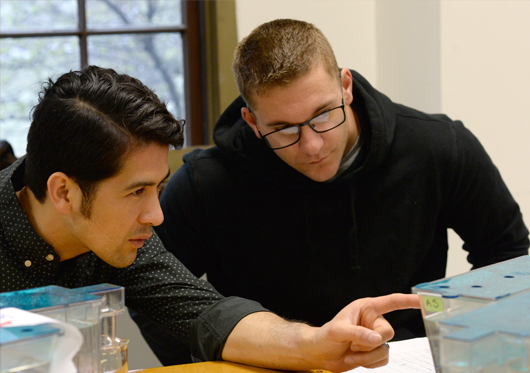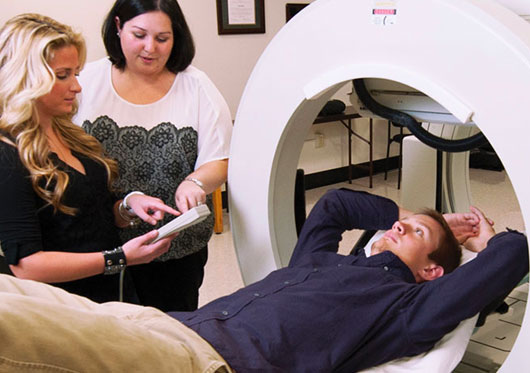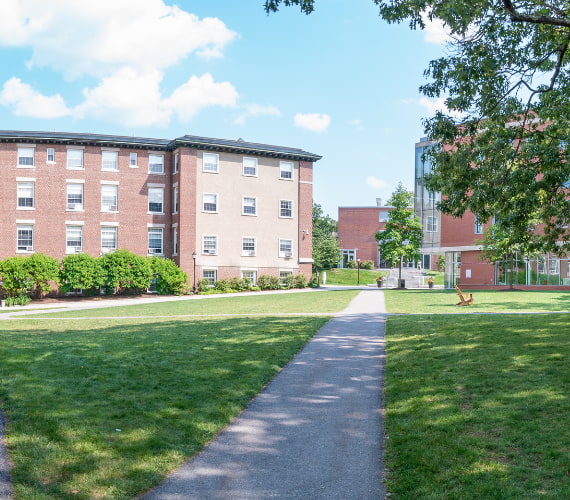Many students want to earn a bachelor’s degree (or complete one that they have already begun), but worry about the costs of doing so. It’s no secret that attending college can be expensive—and just like everything else, the cost of earning a degree rises each year along with inflation. All of which has made certain questions incredibly common amongst those who are considering earning their degree:
Are student loans worth the price? Is the value of earning a bachelor’s degree worth the interest that comes with borrowing loans? How can I determine the ROI of earning a degree so that I can better understand whether or not attending college makes sense for me?
Below, we offer advice that prospective students can use to answer these questions and come to a conclusion that is right for them.
Are Student Loans Worth It?
Unfortunately, there is no single right or wrong answer to this question. Whether or not earning a college degree is worth the costs associated with student loans is ultimately a personal decision which must be based on an individual’s unique personal and financial situation.
It’s important that a prospective student understands their underlying motivations for wanting to earn a degree in the first place. For example, do you want to earn a bachelor’s degree because:
- it’s required to work in a particular field?
- you want to make more money?
- you have eventual goals of earning an advanced degree?
- you simply value education, and it has always been a personal goal of yours to earn a degree?
Depending on your answers to these questions, and how strongly you feel about your motivations, you can come to a decision as to whether or not student loans are worth it for your personal situation.
It’s also important to note that student loans are not the only means available for funding your college education. Scholarships, grants, work study, other forms of tuition assistance can all be leveraged in addition to student loans to pay for college, and students should consider all of the options available to them before they decide to take out loans.
“A college degree is an investment in yourself and your future,” says Laura Bertonazzi, Dean of Undergraduate Enrollment and Retention at Regis College. “A student loan is one way to help you in the pursuit of this goal.”
Benefits of Earning Your Bachelor’s Degree
To help you better determine whether or not earning a college degree will be worth the cost of student loans for you, below we discuss the various benefits associated with earning a bachelor’s degree.
1. Increased Earning Potential
It’s been shown time and time again that education has a direct impact on the amount of money that an individual can expect to earn over their career. While specifics vary according to a number of factors—such as the field of study that you pursue and where in the country you work—there is a general trend of higher education leading to higher pay.
According to the Bureau of Labor Statistics (BLS), the average weekly salary of someone who has earned their high school diploma but who has no college experience is roughly $730 each week, or $37,960 each year. By comparison, the average salary of someone who has earned their associate's degree is roughly $862 each week, or $44,824 each year. Earning a bachelor’s degree leads to an even more substantial increase in average pay: $1,198 each week, or $62,296 each year. And the amounts only rise further with advanced and professional degrees.
2. Higher Job Security
The same data from the BLS shows a strong correlation between educational attainment and unemployment rate, indicating that those who have earned a degree have greater job security, and less risk of being unemployed, than their peers without degrees.
While the unemployment rate is 4.1 percent amongst those with just a high school diploma, it drops to 2.8 percent for individuals with an associate's degree and to 2.2 for those with a bachelor’s degree.
3. Opportunities for Career Advancement
In addition to higher pay and job security, college graduates also tend to enjoy greater access to job opportunities and career advancement.
According to the Center on Education and the Workforce at Georgetown, college graduates in 2016 saw 57 percent more job opportunities than those without a degree. In 2020, it’s expected that nearly 66 percent, or two-thirds of all jobs, will require some form of post-secondary education.
“In many fields, a bachelor’s degree is a requirement, or may open up additional opportunities for promotion and higher salary,” says Bertonazzi. “For example, someone who has an associate's degree and wants to work in medical imaging may start out as an entry-level employee making entry-level wages, whereas someone with a bachelor’s degree is more likely to be empowered to move into a management or leadership role and earn more per year.”
4. Generally Required for Advanced Education
One final benefit of earning a bachelor’s degree which sounds obvious, but is sometimes overlooked, is that, if you plan to earn a graduate degree (such as a master’s degree, PhD, or professional degree) you will first need to earn your bachelor’s degree. This is especially important for specialized careers, where advanced degrees are a requirement to work in a particular field.
“A bachelor’s degree is a requirement for earning advanced degrees,” Bertonazzi says, “such as master’s degree, a law degree, or a medical degree.”
That being said, some colleges and universities may offer so-called “bridge programs” designed to carry a student straight through to their master’s degree. At Regis College, for example, there are a number of degrees, like the Accelerated Direct Entry MSN, available to students interested in earning both their bachelor’s degree and master’s degree in a condensed time frame.
Making the Right Decision for Yourself
When determining whether or not the cost of earning a degree makes sense for you, it’s important to consider your personal, professional, and financial goals and how earning a degree fits in with those plans.
“Consider how earning a degree can advance your career, but also make sure you have a full understanding of what your investment will be,” Bertonazzi says.
She also points out that there are many resources available to prospective students who are thinking through their decision.
“Financial aid counselors are a great resource! Take the time to meet with your financial aid counselor and understand your financial aid award and your financing opportunities and what may work best for you,” she says.
Are you considering enrolling in a degree completion program to finish a bachelor’s degree that you have already started, or to convert your associate's degree into a bachelor’s degree? Learn more about bachelor’s degree completion at Regis College!







